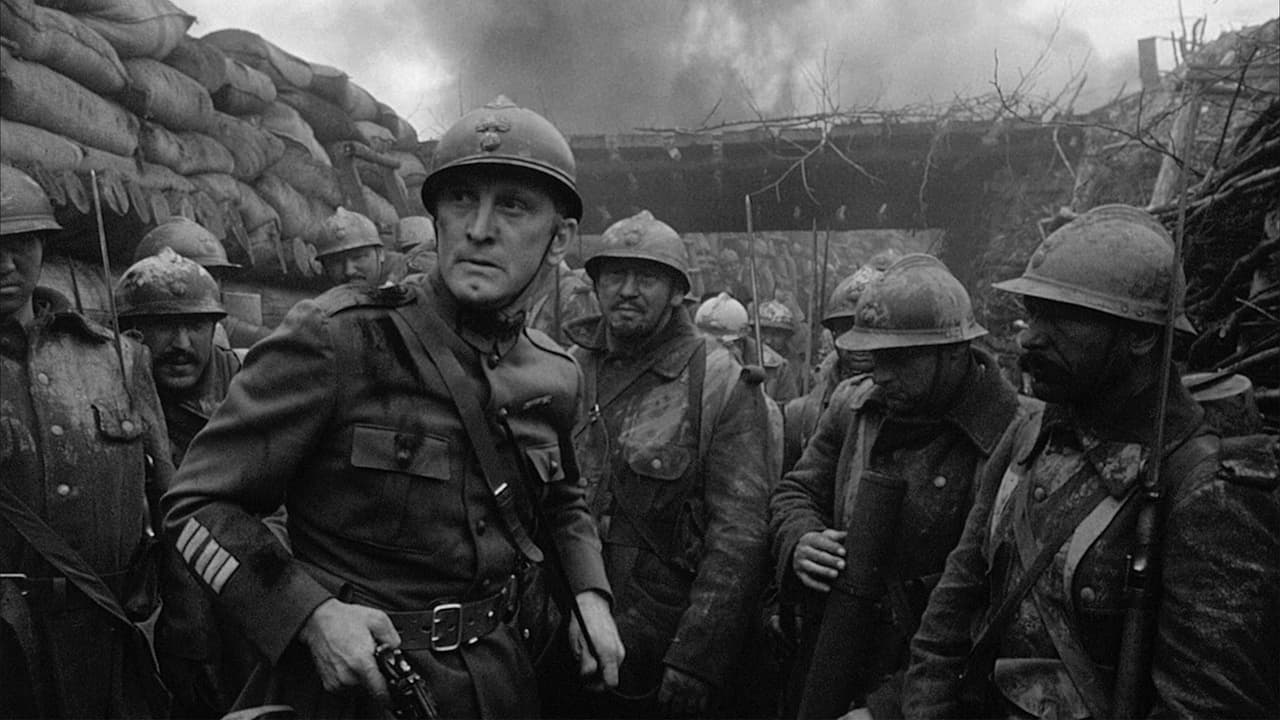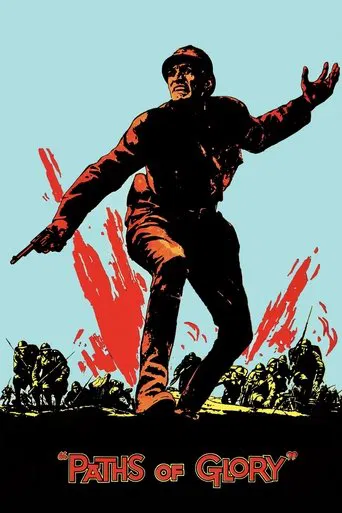

The movie has good writing, directing, acting, and style. First time I see Kirk Douglas, or young Kirk Douglas, and I was pleased with his performance. Maybe this is the oldest trial I have seen in a movie, along 12 angry men, and it was preformed very well. The movies tackles issues with war such as cruel leaders, brutality of war, the army system, and the soldiers hesitation in war, whom you can't really blame because of the horrifying enemy's machinery and weapons firing in-front of them. The movies also shows the loyalty and honesty of some generals that they are ready to defend their soldiers in front of the leaders in trial, and refusing to be a under a system which condemn their soldiers lives just for reputation. It also shows the extent at which some leaders are ready to go to protect their reputation. Also, the grey area that the top leader hide in, not offending or denying the leader, nor protecting him. The before execution atmosphere is well done in the movie. All in all, a very good movie.
... View MoreThe best war and anti-war film ever made, and perhaps on of the top ten films ever made. No wasted action or shots or dialogue--for anyone who has visited the killing fields of WW1 in France and Belgium, this story rings true. This film gives the lie to Renoir's opening of La Grande Illuson in which Renoir seemingly thanks the Americans for coming to the aid of the democracies. This film shows the flaws of the "democracy" that was France, and indeed, of all democracies, when life becomes only a percentage of casualty. Would be nice if Trump would watch this.Masterpiece!!
... View MoreIt took a while to see the film that put Stanley Kubrick on the map as a force to be reckoned with. Paths of Glory was a war film with an interesting premise and has the reputation for being an "anti-war" piece on the dehumanization of soldiers. With Kirk Douglas as the star, the plot centers around prideful and power-hungry French military officers who order an impossible mission from a battalion who fleas upon defeat and is accused of cowardice. Many other films by Kubrick shows his powerful and masterful filming style and Paths of Glory is no different. The focus is strong and it's difficult to take your eyes off the screen throughout the picture. Good use is made of these phenomenal actors who give heartfelt performances and deliver strong and emotionally piercing lines. The film is a short and crisp 88 minutes so it's easy to watch anytime. This also makes the pacing clean and the viewer will know every scene, shot, and frame is completely intentional and justified. Not a single moment of this fascinating and well done film is wasted and the talented actors are utilized to their fullest. Perhaps any downside to this film is the first 20-30 minutes in which the viewer may be wondering what kind of film they're watching and for what purpose. It's easy to see how upon release, however received with high regard, was met with some confusion as to the substance of the story and what it was trying to say. It's not a film that glorifies war or conflict; in fact, the concept of battle (physical or psychological) can cause some irritation for the viewer. This was most likely intended and it was probably a good move in the long run.Personally, I enjoyed Paths of Glory throughout the picture and found it as important as it is beautifully directed. However, the most impactful piece of the story is the final scene in which a woman is singing to a group of soldiers in a bar. Not many other scenes have had so much emotional impact and beauty that it truly made Paths of Glory a personal favorite. Really no complaints about the quality of this film or the personal pressure points it wasn't afraid to touch. It's also amazing how those emotions can be pierced so powerfully more than 50 years after this was released. It's a grand milestone in filmmaking that deserves much more attention and is highly recommended to anyone who has the chance to see it. It's simply amazing!
... View MoreEasily the most important movie I've seen in terms of its emotional and intellectual impact. I was nine when it showed at the Main Street theater (25¢ for Saturday matinée), and never forgot it. The idea that army officers would be dishonest, corrupt, and willing to have their own troops executed for no crime was absolutely at odds with everything I was supposed to believe about how the world works—growing up in a military town, in a family proud of its war stories. When I finally saw it again almost sixty years later every scene resonated as if I'd seen it just a week before. The movie was exactly as great as it was the first time around—and for exactly the same reasons. It pulls no punches. Recommended without reservation.
... View More